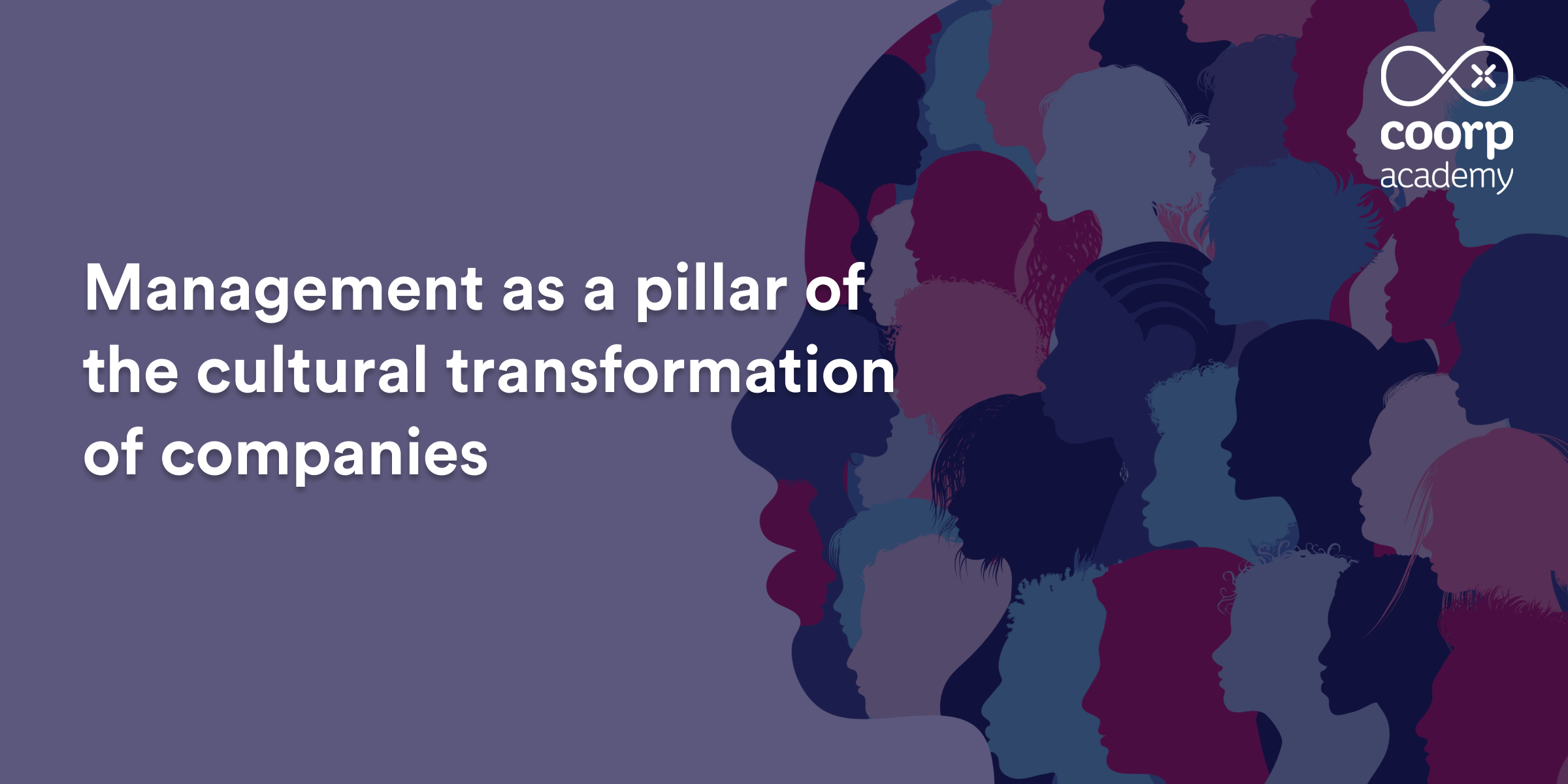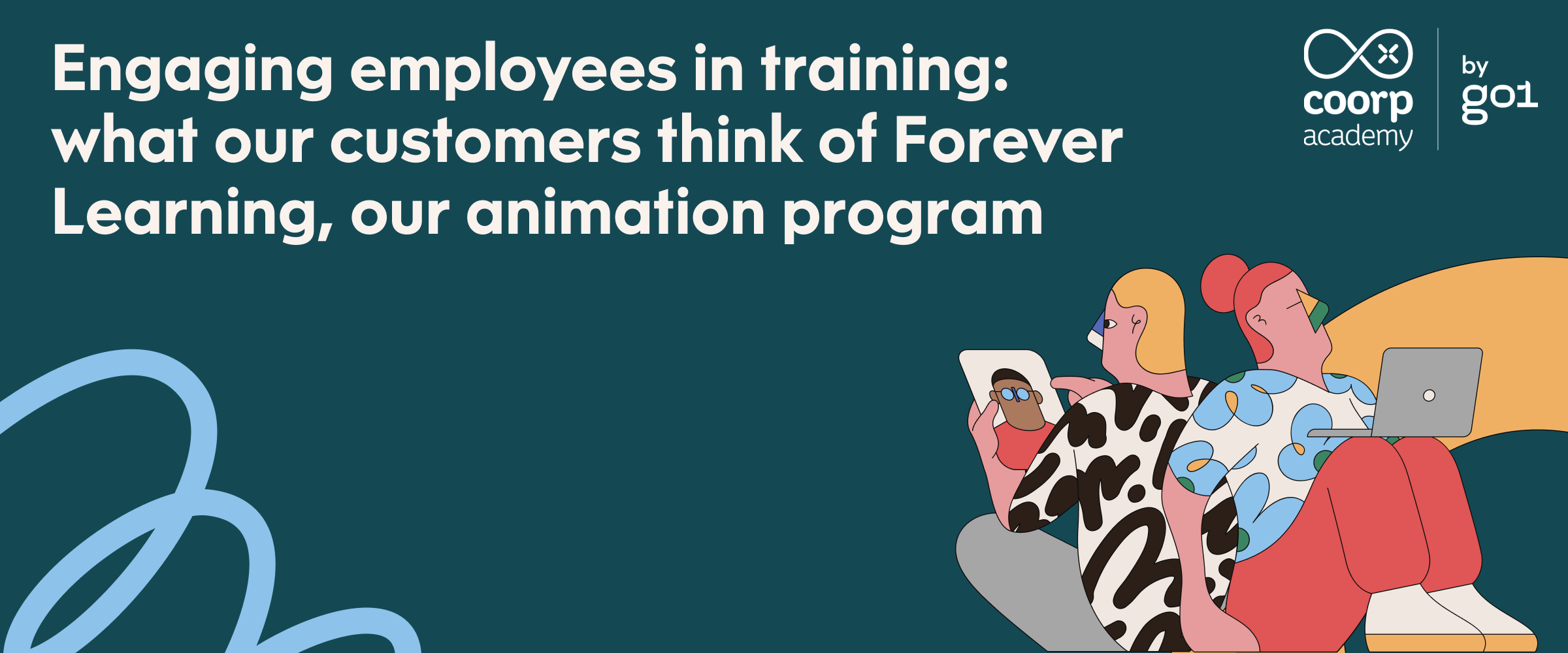Management as a pillar of the cultural transformation of companies
Learning Innovation

Following a year of lockdown, organisations’ culture is undergoing a profound change. The pandemic has changed our habits and behaviours, beyond the personal sphere. To ensure recovery, companies are resilient and are preparing to face the transformations they are going through. The new management and working methods also imply a profound change in the corporate culture and this transformation is essential to support the other transformations to come.
Google searches around Employer Brand have doubled in three years, and 77% of adults in four countries (US, UK, France and Germany) say they first learn about a company’s culture before applying for a job, according to Glassdoor‘s Mission and Culture 2019 survey.
The culture of a company is now an inseparable factor in employee well-being. This trend is only becoming more pronounced as Millennials enter the workforce. The new generation is challenging organisations, demanding a corporate culture that shares their values and, above all, that these values are supported by management and embedded in the day-to-day running of the business. The Glassdoor study confirms this new paradigm as 73% said they would not apply to a company if they did not share its values.
But the arrival of millenials on the labour market is not the only issue of cultural transformation. Indeed, our contemporary economy is giving rise to new trends, new modes of organisation, which are giving rise to transformations. There are many issues at stake: the transition from a vertical organisational mode to a more horizontal and open organisation, the transition from a product-centred economy to a customer-centred strategy, new managerial functions and practices (start-up model, reinvented company, emergence of the manager-coach). Companies are also working more and more with a wide range of international players: suppliers, customers, employees, etc. Being able to work, exchange or negotiate with people of different nationalities and profiles is now a key skill. For all these reasons, companies must transform themselves to meet the new needs of the talents they recruit, to ensure the diversity and richness of their teams, to consolidate their operations on a global scale and, finally, to adapt to a changing world.
Transforming a company’s culture means questioning all the behaviours in the company, but also the policy, commitments and processes, so that all these elements that make up the organisation reflect the values and beliefs of the employees. It is not just a question of adopting behaviours and ready-made sentences, but of deconstructing the tacit “rules” that regulate the life of the company and the unconscious, informal and non-verbal behaviours of each person. Thus, a cultural transformation is also an individual transformation, which upsets the ways of thinking of the employees, which makes the values shared by the group evolve, and concretely change the way employees act.
Corporate culture is defined with words and implemented with actions. Behaviours are the concrete testimony of an organisation’s culture. To ensure that change is successful, that attitudes are aligned with the company’s values, collective and individual coaching is crucial. The manager is a pillar of all major transformations, as they guide change by involving each employee in the great adventure that is corporate life. So, what skills must the manager develop to ensure the cultural transformation of his organisation?
Diversity and Inclusion
Our organisations are made up of people from different backgrounds and interact with a multitude of stakeholders around the world. The term diversity, as Dr Derrick Gay – an international educator specialising in intercultural competence, diversity and inclusion – points out, is often used to refer to people who are identified as ‘different’. But different from whom, from what? The term implies that there is a normality, but there is only a plurality of personalities, cultures, religious practices; ways of perceiving and experiencing the world. While the company is a place where societal changes can be brought about and developed, knowing how to disseminate a culture of inclusion and truly understand diversity is crucial for today’s managers if they want to accompany the cultural transformation of their organisation and encourage employee fulfilment. Working in a company that encourages different points of view, that listens to a variety of experiences, and where everyone can express themselves freely, has a positive impact on the overall performance of the team and the company.
Adaptability and Resilience
In physics, resilience is the ability of a body to absorb shocks. In psychology, it is the ability of an individual to cope with a difficult or stressful situation. As the COVID19 crisis has surprised us all and forced us to change our processes, resilience has become an urgent skill to develop. Indeed, employees and organisations today evolve through disruptions, which we must learn to overcome without being destabilised! This is the whole point of developing resilience in business. A resilient individual will be able to better manage stress, adapt more easily to an unforeseen situation and remain optimistic when faced with adversity. Resilience and adaptability are two highly sought-after soft skills. According to an Ifop Lavazaa study, adaptability is even one of the most valued soft skills in companies. Adaptability means knowing how to evolve in an environment that is different from the one you know, without letting yourself be conditioned or influenced by this new context. As a manager, developing the resilience of teams is key to fostering group cohesion and supporting the cultural transformation of the organisation. Overcoming hardship, being resilient together reinforces the feeling of belonging to a group, a tight-knit group in which we can rely on each other. Knowing how to adapt also means knowing how to work surrounded by different ways of thinking, doing and conceiving projects, which is key for organisations that wish to succeed in their cultural transformation.
Creativity and Innovation
Working in teams, especially when they are composed of diverse profiles, is an excellent way to foster creativity and innovation. To support the cultural transformation of companies, managers must favour co-creation and facilitate the expression of each individual. Creativity is sometimes innate, but it can be cultivated and developed through training. To stimulate teams and create true multicultural collaboration, managers must also stimulate their own creativity and spread this climate of the right to make mistakes, imagination, etc. All employees must feel legitimate to express their ideas, to experiment, but above all, to build collectively. The challenge of creativity for cultural transformation lies in the group’s ability to work collaboratively, to expose itself to different ways of thinking and to hear the points of view of the other members of the team. In addition, our new ways of working have also led to the emergence of new methods such as Design Thinking or Mind Mapping. These new methods, which are familiar to the new generations, promote team cohesion, unleash creativity and bring out innovative solutions. Eventually, in an organisation where everyone looks the same, ideas are similar, and questioning is more complicated. Creativity is therefore an essential element for successful cultural transformation, because it initiates everyone to work together and to imagine diverse solutions, just like the company.
In conclusion, organisations are facing new challenges regarding their employees. New quests for meaning, new managerial paradigms, new demands, the company must transform itself to meet the values and expectations of today’s and tomorrow’s workforce. To promote cohesion, creativity and innovation, the manager must instil this culture of diversity in everyone, so that everyone understands it and promotes its inclusion. We are all different, and everyone is “abnormal” according to an established norm. The company must be nourished by this plurality, and must also put in place the means to achieve it. This is the cultural transformation and the manager is a pillar for its success.


